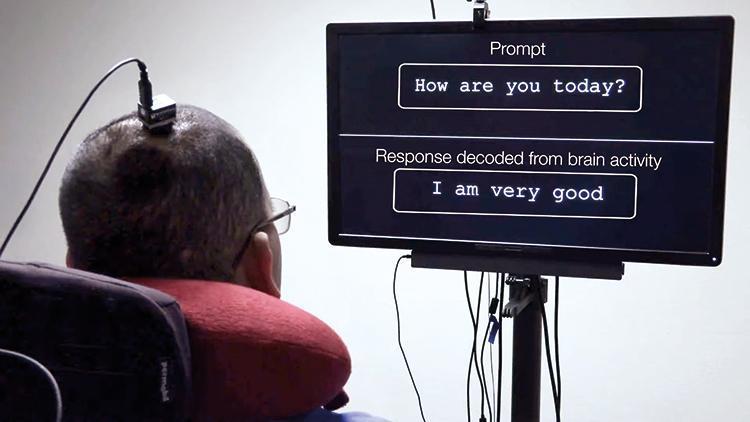The brain waves of a paralyzed patient who lost the ability to speak were translated into meaningful sentences thanks to a newly developed neuroprosthesis. The exciting development in the scientific world emerged at the University of California San Francisco (UCSF) in the USA. The experts, who placed electrodes in the speech center of the patient’s brain, were able to accurately transfer their words to the computer screen, thanks to the algorithm they developed. The results of the research, which is a first in the world, were published in the British “New England Journal of Medicine”.
The 36-year-old paralyzed man who participated in the trials and whose name was announced as ‘BRAVO1’, had a 20-year-old traffic He lost the ability to speak and walk as a result of the accident. BRAVO1, who could not speak for over 16 years, volunteered for the trials of the study in question, and nearly 130 electrodes were placed in the part of his brain where the speech center is in order to communicate. Thanks to a special algorithm developed, the sentences that BRAVO1 wanted to set were mostly accurately reflected on the computer screen.
SUCCESSFUL IN SHORT SENTENCES
class=”cf”>
“After 48 sessions and 22 hours of brain waves were recorded, we created a data set of 50 sets of words the patient was trying to say,” said Edward Chang, professor of neurology at UCSF, who was at the beginning of the study. Stating that they have a long road ahead of them in order to develop the algorithm and enable the patient to construct longer sentences, Dr. Chang stated that in 9,000 trials, the algorithm correctly detected half of the words. Chang said that as of now, the system works more fluently with short sentences.
The difference of this study from previous studies on paralyzed patients is that it not only predicts words, but also enables fast and organic communication. David Moses of UCSF, one of the lead authors of the study, said that after the paralyzed subject thought, it only took three to four seconds for the words to appear on the screen. “This is faster than the usual response time of a human mouth.”
This guide guides gastronomy enthusiasts
– .

